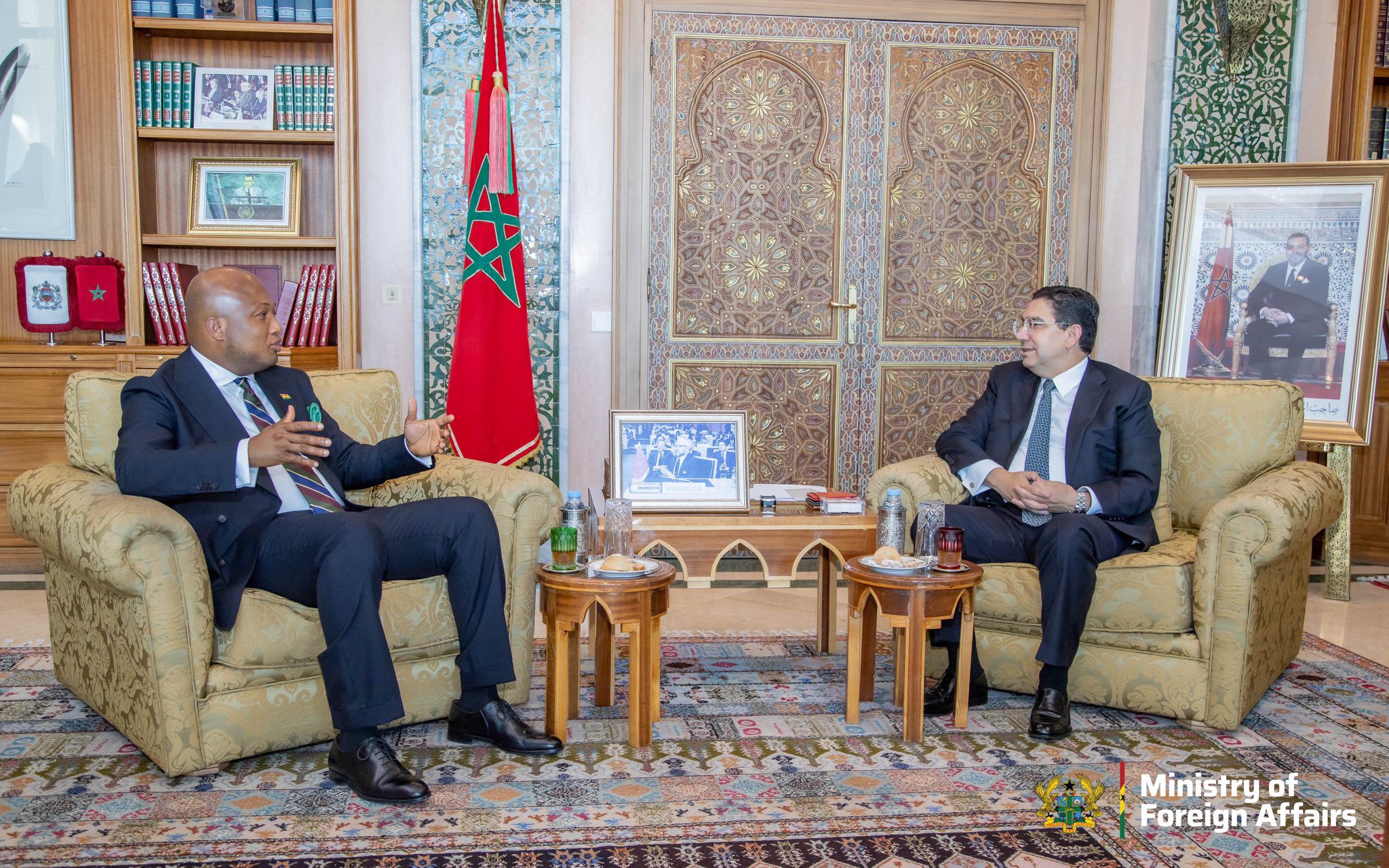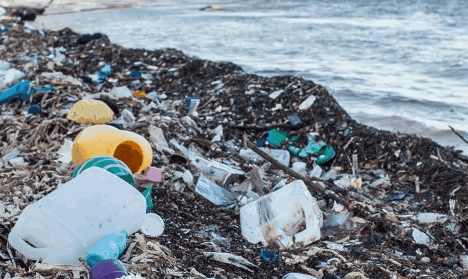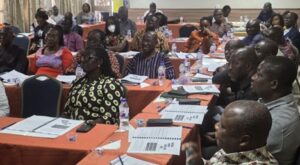

 The Social Security and National Insurance Trust (SSNIT) land acquisition controversy, centered on a $5.45 million purchase of a 1.52-acre plot in Accra in January 2016, is more than just a case of financial mismanagement. It’s a stark symptom of deeper, systemic issues plaguing Ghana’s public institutions, highlighting critical failures in governance, transparency, and accountability.
The Social Security and National Insurance Trust (SSNIT) land acquisition controversy, centered on a $5.45 million purchase of a 1.52-acre plot in Accra in January 2016, is more than just a case of financial mismanagement. It’s a stark symptom of deeper, systemic issues plaguing Ghana’s public institutions, highlighting critical failures in governance, transparency, and accountability.
While the immediate focus is on the questionable transaction itself, the scandal serves as a powerful catalyst for examining and reforming the broader framework that allows such incidents to occur. The very foundation of public trust is at stake, demanding a comprehensive overhaul to ensure the protection of workers’ retirement savings and the integrity of the nation’s institutions.
The details of the land deal are concerning enough. SSNIT’s acquisition of the land from Premier Porfolio Limited (PPL) in January 2016, at a price now widely considered inflated, has triggered a protracted legal battle to recover the funds.
After a protracted legal battle with the Lands Commission (LC), the land was finally plotted in favour of Mr. Nunoo in December 2016, when SSNIT had already parted with the amount to PPL in January, 2016.
Investigations have revealed that Mr. Ernest Nunoo, a real estate developer had obtained rights to the land from the Osu Traditional Council in 2004.
The timeline and circumstances surrounding the purchase raise serious questions about due diligence and the decision-making processes within SSNIT. Why was such a prime piece of land acquired at what appears to be an inflated price? What measures were taken to verify the land’s ownership and value before the transaction? These questions remain largely unanswered, fueling public suspicion and eroding confidence in SSNIT’s management.
However, the true gravity of the situation extends beyond the financial loss. The public’s reaction to the scandal underscores a deep-seated frustration with the perceived double standards within SSNIT and other public institutions. As policy analyst Magnus Kwame Owusu pointed out, the swift and severe punishment meted out to junior employees for minor infractions stands in stark contrast to the apparent lack of accountability for senior officials involved in this multi-million-dollar blunder. This disparity creates a sense of injustice and undermines morale among staff, fostering a culture of cynicism and distrust.
The issue of transparency is equally critical. SSNIT’s reluctance to disclose the identities and roles of the officials involved in the land transaction, citing confidentiality, has only exacerbated public outrage. Labour rights activist Innocencia Yaa Agyemang’s assertion that “the absence of transparency is alarming” reflects a widespread concern that the institution is attempting to shield those responsible from scrutiny. Without transparency, it is impossible to hold individuals accountable for their actions and to prevent similar incidents from occurring in the future.
The financial implications of the land deal are significant. As SSNIT itself acknowledged, had the $5.45 million been invested in a diversified portfolio, it could have grown to about GH¢115 million by March 2025, representing a substantial return for the workers whose futures depend on the prudent management of their contributions. The loss of this potential gain highlights the opportunity cost of the ill-fated land deal and underscores the importance of sound investment strategies.
The Auditor-General’s reports have consistently highlighted the need for improved oversight in SSNIT’s real estate investments, which have often been plagued by mismanagement and a lack of proper documentation. The current controversy serves as a stark reminder of the importance of due diligence and ethical decision-making in the handling of public funds. When the guardians of these funds falter, the repercussions ripple through the lives of everyday citizens who rely on these savings for their retirement.
The involvement of the LC in facilitating the sale of the disputed land raises even more troubling questions about the integrity of the land acquisition process in Ghana. The LC’s role in verifying land ownership and ensuring compliance with regulations is crucial, and any perceived complicity in this matter further complicates the landscape. It suggests that the challenges facing SSNIT may extend beyond its own internal governance, requiring a broader examination of the regulatory framework and the institutions responsible for overseeing land transactions.
Experts recommend some steps to address systemic issues and restore public trust in SSNIT. Notable among them are:
Rebuilding trust: Key steps for SSNIT and Ghana’s public institutions
In the wake of the SSNIT land deal controversy, experts and concerned citizens are calling for comprehensive reforms to restore public trust and prevent future incidents of mismanagement. The path forward requires a multi-pronged approach focusing on transparency, accountability, ethical leadership, and systemic improvements.
Openness is paramount
“Transparency is the bedrock of public trust,” says Kwame Addo, a governance expert. “SSNIT must open its books and its processes to public scrutiny.” This means disclosing the details of investment decisions, procurement procedures, and disciplinary actions. Critically, the identities and roles of officials involved in major transactions should be made public, and thorough internal investigations into allegations of wrongdoing must be conducted with findings released to the public. Regular audit reports should also be readily accessible.
Strengthening the watchdogs
A key area for reform is the structure and oversight of SSNIT’s board of directors. Experts argue that the board must be truly independent, composed of competent individuals, and held accountable for its decisions. The board needs to be empowered to effectively oversee management, implement policies that promote ethical behavior, and ensure sound financial management.
Due diligence is non-negotiable
Moving forward, SSNIT must overhaul its due diligence processes for all investments, particularly in real estate. This includes conducting thorough market research, obtaining independent valuations of properties, and rigorously verifying land ownership before any commitment is made. A robust risk management framework is also essential to identify and mitigate potential threats to investments.
Cultivating ethical leadership
Beyond structural changes, a shift in culture is needed. SSNIT must actively foster ethical leadership and a culture of integrity at all levels. This includes comprehensive ethics training for all employees, establishing confidential channels for whistleblowers to report wrongdoing without fear of reprisal, and consistently enforcing strict disciplinary measures against those who violate ethical standards.
Reforming land acquisition
The SSNIT scandal has also shone a spotlight on the need to reform the broader land acquisition process in Ghana. The government must review the regulatory framework to ensure it is transparent, efficient, and equitable. A critical component of this is strengthening the capacity of the Lands Commission to accurately verify land ownership and prevent fraudulent transactions.
Empowering citizens
Finally, a healthy democracy requires an active and informed citizenry. Civil society organizations and the media play a vital role in holding public institutions accountable. The government must ensure these actors can operate freely, scrutinize the actions of public officials, and provide a platform for public discourse on important issues.
By taking these steps, Ghana can begin to rebuild trust in its public institutions and ensure that organizations like SSNIT are truly serving the interests of the people.
The SSNIT land deal controversy is a wake-up call for Ghana. It is an opportunity to address the systemic issues that have allowed such incidents to occur and to build a more transparent, accountable, and ethical public sector. The future of SSNIT, and indeed the future of Ghana’s public institutions, depends on the willingness of stakeholders to embrace comprehensive reform and to prioritize the welfare of the citizens they serve. The time for action is now.
By Innocent Samuel Appiah
The post The SSNIT land scandal: Beyond a bad deal appeared first on Ghana Business News.
Read Full Story


















Facebook
Twitter
Pinterest
Instagram
Google+
YouTube
LinkedIn
RSS